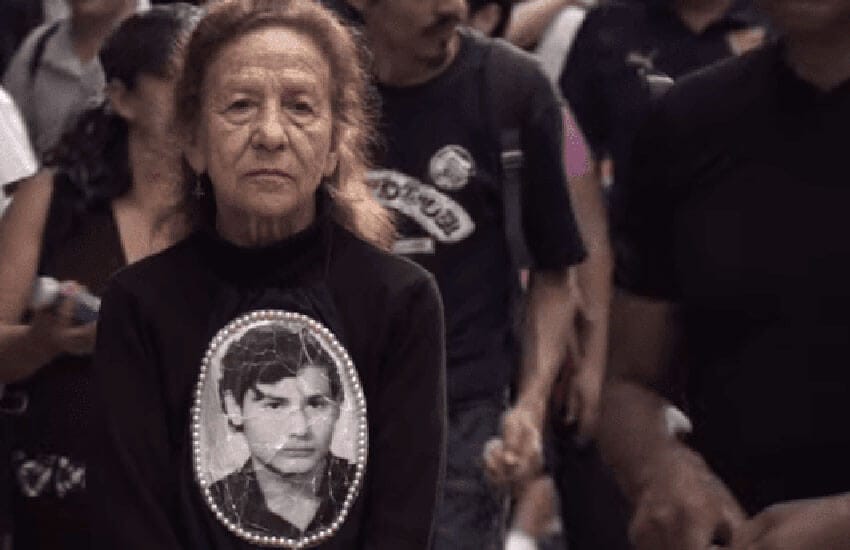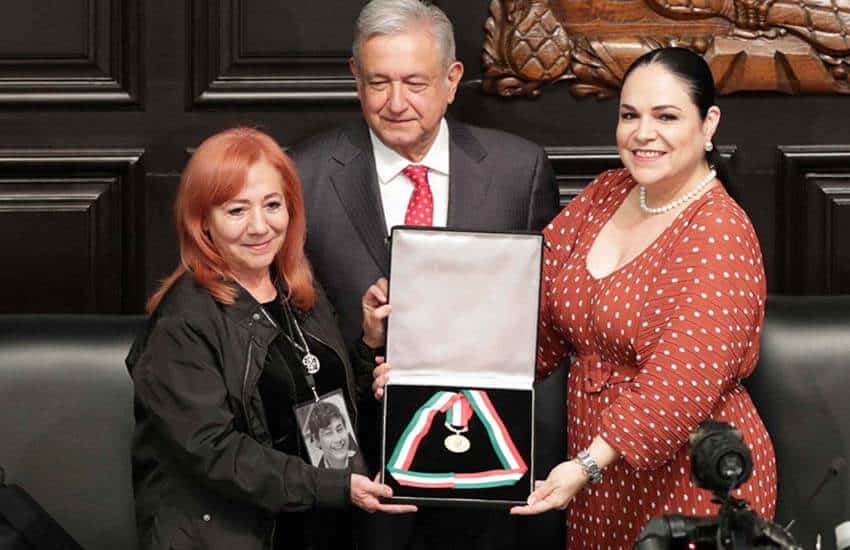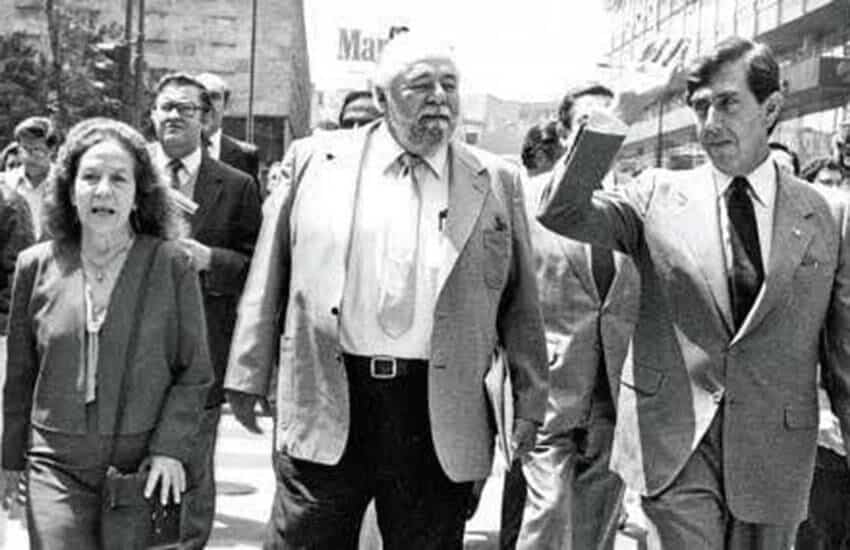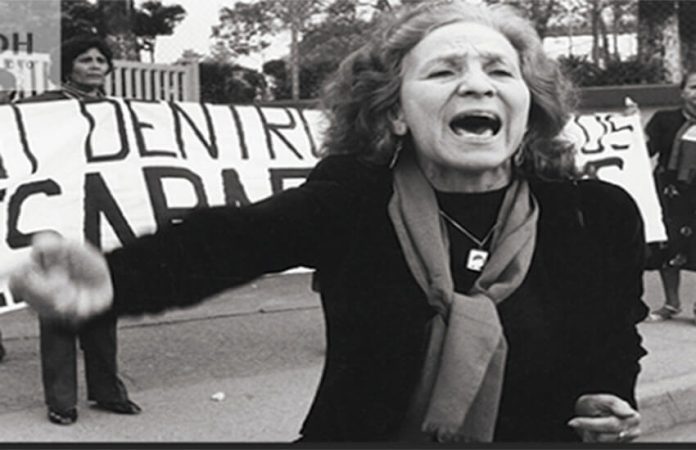Rosario Ibarra de Piedra — a political and social activist who fought for justice for Mexico’s thousands of missing persons, led the search for them and became the country’s first female presidential candidate — died in Monterrey, Nuevo León, on Saturday at the age of 95.
The National Human Rights Commission (CNDH) announced her death on Twitter, describing her as a “tireless activist” and a “pioneer in the defense of human rights, peace and democracy in Mexico.”
No cause of death was given, but her health had been deteriorating for several years.
The CNDH — whose president is Ibarra’s daughter, Rosario Piedra Ibarra — also noted that her mother was the founder of the Eureka Committee, which the CNDH described as “one of the first organizations of mothers, fathers and relatives of missing persons.”
Born in Saltillo, Coahuila, in 1927, Ibarra reached the defining point of her life in 1974, when her son Jesús – a member of a communist guerrilla group – disappeared. His abduction allegedly occurred at the hands of authorities after he was accused of murdering a police officer.

Jesús’ disappearance came amid Mexico’s Dirty War, an internal conflict from the 1960s to the 1980s in which successive Institutional Revolutionary Party (PRI) governments violently repressed left-wing student and guerrilla groups.
Ibarra, who never definitively found out what happened to her son, subsequently embarked on what would become a decades-long fight against enforced disappearances and for justice for victims. Her impassioned struggle turned her into Mexico’s most prominent social activist.
In 1977, she formed Comité ¡Eureka! due to the lack of progress on her son’s case and as its leader fronted countless protests that denounced the involvement of the government in enforced disappearances and called for the release of political prisoners. One of the best-remembered was a 1978 hunger strike outside Mexico City’s main cathedral, where demonstrations were officially banned.
The Eureka committee, largely made up of other mothers searching for their missing children, documented more than 500 disappearances during the 1970s that were allegedly perpetrated by the state. It has succeeded in locating over 100 people who disappeared but were not killed by their abductors.
In 1982, as she continued to fight for justice for her son and other missing persons, Ibarra represented the now-defunct Workers Revolutionary Party (PRT) in the presidential election, becoming the first woman to run for the country’s top job. She attracted less than 2% of the vote but nevertheless represented the same party at the 1988 election, at which she fared even worse.
Although she garnered few votes, her participation in the elections, as the first female presidential candidate in Mexico’s history, was still significant. Only five other women have appeared on a presidential ballot in Mexico, including former first lady Margarita Zavala, who pulled out of the 2018 race before election day.

Ibarra served as a deputy for the Trotskyist PRT between the 1982 and 1988 elections before later joining the leftist Democratic Revolution Party (PRD), which she represented in the lower house of Congress between 1994 and 1997 and in the Senate between 2006 and 2012.
For her unflagging activism in favor of missing persons and their families, she was nominated for the Nobel Peace Prize on four occasions but never won the award.
However, in 2019, Ibarra was awarded the Mexican Senate’s highest award, the Belisario Domínguez medal, although she didn’t attend the conferral ceremony due to her health problems and asked President López Obrador to hold it for her while the country’s missing persons problem — there are today more than 95,000 such people — remained unresolved.
“I don’t want my fight to be left unfinished. That’s why I leave such a precious recognition in the custody of your hands and ask you to return it to me together with the truth about the whereabouts of our beloved and missed children and relatives,” she said in a letter to the president, to whom she presented a presidential sash in a mock ceremony after he claimed fraud cost him the 2006 election won by Felipe Calderón.
López Obrador, a member of the PRI and the PRD before founding what is now the ruling Morena party, acknowledged Ibarra’s passing in a Twitter post on Saturday, writing that she will “always remind us of the most profound love for children and solidarity with those suffering due to the disappearance of their loved ones.”
“She supported us at all times and I will never forget that my mother voted for her for president of the republic,” he added in a second post. “A hug to her children and to her many followers and friends.”

Among the many other public figures who lamented the death of Ibarra was Economy Minister Tatiana Clouthier, whose father ran against her in the 1988 election. Manuel Clouthier, who represented the National Action Party at the election; Cuauhtémoc Cárdenas, who stood for the National Democratic Front; and Ibarra joined forces to denounce fraud at the 1988 vote, which was won by PRI candidate Carlos Salinas de Gortari.
“I deeply lament the death of Rosario Ibarra de Piedra,” Tatiana Clouthier wrote on Twitter in a post that included a photo of her father with Cárdenas and Ibarra during a protest following the 1988 election, which is widely accepted to have indeed been fraudulent.
“[She was a] tireless woman who paved the way for mothers looking for their disappeared children and who, like few others, transitioned to a clean political career. In my family, we will remember with affection her sensitive words when my father died,” Clouthier said.
With reports from EFE and El Universal
